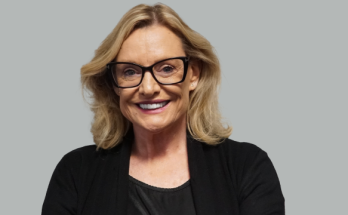Pharmacists play a pivotal frontline healthcare role, which brings much relief to South Africa’s overburdened healthcare system. As the most accessible healthcare professionals, especially in areas where access to medical services is limited, pharmacists are a critical front-line advisor for patients seeking guidance.
Add to that the growing trend towards self-medication, and their position as trusted healthcare advisors has become increasingly important. Positioned between the pharmaceutical industry and the consumer, pharmacists bridge the gap between medical science and patient need, translating complex treatment information into practical healthcare decisions.
Closing the healthcare gap
South Africa’s healthcare system faces a well-documented burden of resource constraints, with limited access to doctors and long waiting times in both public and private sectors. Pharmacists, particularly in community settings, help to alleviate the strain by offering advice, managing frontline ailments, and guiding patients toward appropriate care.
For many South Africans, the pharmacist is the first, and sometimes only, point of contact with the healthcare system. By equipping pharmacists with up-to-date evidence-based healthcare information, they remain empowered to triage effectively, identify symptoms, recommend appropriate over-the-counter (OTC) treatment, recognise red flags, and refer patients for further evaluation, when necessary, ultimately improving patient outcomes.
Continuous professional development (CPD)
Pharmaceutical manufacturers are one of the main drivers of ongoing healthcare professional education. Up until recently, rep visits were the primary method for pharmacists to learn about new scientific findings and treatment options. However, face-to-face visits have declined rapidly due to scheduling conflicts, travel costs, and limited access via large corporate pharmacy groups. Digital CPD has replaced traditional face-to-face outreach, providing pharmacist professionals with the critical information they need to deliver informed and accurate patient care.
Pharmacy Institute is the trusted online academy developed specifically for pharmacy professionals, providing the latest evidence-based healthcare information, clinical resources, and webinars on front-line ailments and treatment options. This ensures pharmacists remain knowledgeable and confident to diagnose and recommend treatment. In addition, it provides pharmacists with access to a range of treatment options for front-line ailments, including clinical trials, indications, ingredients, and dosage information, so they can accurately match treatment to patient need.
“With approximately 13,000 pharmacy professionals accessing Pharmacy Institute regularly, to learn new scientific findings, treatment options, and clinical resources, pharmacists are stepping up in their role as front-line healthcare providers,” said Michael Gullan, CEO of G&G Advocacy, an adult eLearning consultancy specialising in continuous workplace development.
Pharmacists are key healthcare influencers
In South Africa, over 60–70% of patients rely on pharmacists for recommendations on OTC products.2 Pharmacists’ endorsements often determine which products reach consumers’ homes. Trust, built through expertise and daily patient interaction with patients, makes the pharmacist’s recommendation one of the most powerful drivers of purchase behaviour in healthcare.
The science behind treatment recommendations
Pharmacists’ treatment recommendations are based on a rigorous scientific process supported by ethical and professional standards. Each recommendation begins with a careful assessment of the patient’s symptoms and medical history, followed by clinical reasoning to identify the most suitable therapeutic option. This includes evaluating drug efficacy, safety profiles, contraindications, and potential interactions with other medications.
The credibility of pharmacists stems from their reliance on evidence-based practice rather than commercial influence. Pharmaceutical manufacturers that continuously invest in clinical research and share findings with the profession contribute significantly to maintaining the scientific integrity of pharmacists’ advice, ensuring that recommendations reflect the latest advancements in treatment efficacy and therapeutic value.
Informed and credible treatment recommendations
The education extends beyond short-term product promotion, and its primary purpose is to strengthen clinical knowledge, build professional credibility, and enhance patient outcomes. Unlike traditional sales-driven interactions, continuous professional education empowers pharmacists to make evidence-based recommendations grounded in scientific reasoning. Brands that invest in sustained pharmacist education benefit from higher product recommendation rates and increased visibility within professional referral networks.
They are more likely to recall and recommend products encountered within credible educational frameworks, confident in their therapeutic value for patients. They often act as the final decision-makers before a patient makes a purchase, and their familiarity with treatment options and clinical confidence are critical. Meaningful educational engagement cultivates both, transforming informed knowledge into trusted advocacy and ultimately driving responsible sales growth.
The pharmaceutical industry’s role in supporting pharmacists
Recognising the vital role pharmacists play in South Africa’s healthcare system, an increasing number of pharmaceutical organisations are investing in their ongoing education. By supporting credible platforms such as the Pharmacy Institute and sponsoring evidence-based educational content, these organisations nurture trust and link their brands with reliable clinical knowledge. This enhances both credibility and therapeutic value.
Pharmaceutical manufacturers that support pharmacist education achieve measurable business benefits, including enhanced reputation, ethical product advocacy, and improved patient outcomes. In a healthcare environment under pressure, pharmacists serve as more than dispensers of medicine; they’re educators, advisors, and advocates whose expertise directly shapes patient care and confidence. For pharmaceutical brands, partnership through credible educational initiatives represents a commitment to advancing responsible healthcare.




